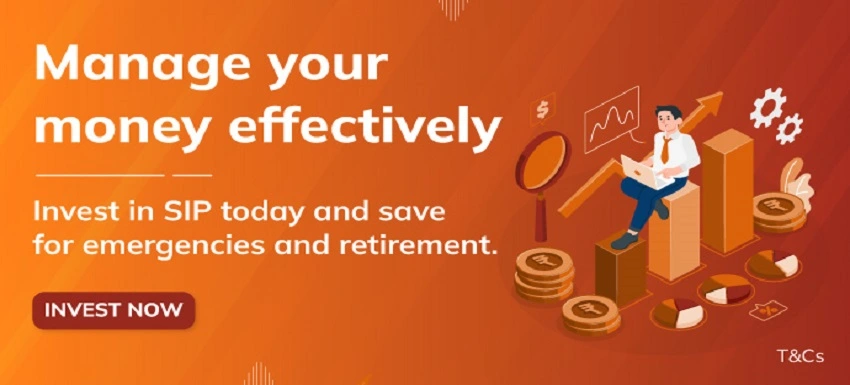THE
ORANGE
HUB
What is a Growth Fund? Definition and Benefits

When we talk about expanding our financial horizons, Growth Funds often pop up in the conversation. A Growth Fund isn't just another financial term; it's a doorway to potentially accelerated wealth accumulation. Ideal for those eyeing long-term wealth creation, these funds have been gaining traction among investors who are ready to take higher risks for higher rewards. This blog isn't just about defining Growth Funds; it's about understanding how they can fit into your financial picture, whether you are starting afresh or are a seasoned investor.
Understanding Growth Funds: Definition
Imagine planting a seed and watching it grow into a flourishing tree. That's what Growth Funds aim to do with your investment. Growth Funds are primarily invested in companies with strong potential for growth - these could be your rapid-rising tech firms or emerging market players that are expected to outperform. The goal here is capital appreciation. Unlike Dividend Funds that focus on providing regular income, Growth Funds are all about increasing your investment's value over time.
These funds are typically invested into companies that reinvest their profits back into their business instead of paying them out as dividends. This strategy can lead to significant growth, especially when these companies are at their peak.
Features of a Growth Fund
Growth Funds come with a higher risk tag, primarily because they are invested in companies that have potential. These funds are typically managed by experts who have their fingers on the market's pulse. They carefully pick stocks they believe are set to soar. However, remember, with high returns come high risks. The market can be unpredictable and so can the performance of these growth-oriented companies.
Aother key feature is diversification. Growth Fund investments are spread across a variety of sectors and companies, which can help cushion against market swings. It's about balancing the high growth potential with a level of safety.
Benefits of Investing in a Growth Fund
The primary allure of a Growth Fund is, undoubtedly, the potential for substantial capital appreciation. It's about seeing your investment grow substantially over time.
Diversification is another big plus. By being invested across different sectors and companies, Growth Funds can help reduce the risk of putting all your money in one type of investment.
Then there's the aspect of long-term gains. Growth Funds are typically more suitable for those with a long investment plan. They are perfect for goals like saving up for retirement or a child's college fund. The idea is to invest and let it grow over the years, reaping the benefits of patience and market growth.
Lastly, the professional management of these funds can be a huge advantage. Expert fund managers are at the helm, making informed decisions about where to invest.
Who Should Invest in a Growth Fund?
Growth Funds are ideal for investors who are willing to take on more risk for the possibility of higher returns. They are well-suited for those who have a long-term investment plan and can stay invested for several years.
Young investors or those far from retirement might find Growth Funds particularly appealing. They have the time to ride out the market's ups and downs and can potentially reap the rewards of long-term capital appreciation.
On the flip side, if you are nearing retirement or prefer a steady income stream, Growth Funds might not be your cup of tea. They are more about growth than immediate returns.
Tax Implications of Growth Funds
Now, let's talk about taxes because they are an important part of any investment decision. Growth Funds, like any investment in the stock market, are subject to capital gains tax. If you sell your Growth Fund shares at a profit, you'll have to pay taxes on those gains.
Short-term capital gains tax applies if you sell your shares in less than a year and it's usually higher. Long-term capital gains tax kicks in for investments held for longer than a year. There's a bit of relief here, as the long-term rate is generally lower.
Growth Funds: A Smart Addition to Your Investment Portfolio?
To wrap it up, a Growth Fund can be a smart addition to your investment portfolio, especially if you are aiming for significant capital growth over the long term. These funds offer the excitement of investing in potential market leaders and the satisfaction of seeing your investment grow.
If Growth Funds make up only a part of your diversified investment strategy, they could be a wise move. It's about counterbalancing your financial goals with the right exposure to risk. Remember, the journey with Growth Funds is a marathon, not a sprint and for a patient investor, the rewards can be truly substantial.
FAQs
Q1: Can I invest in a Growth Fund with a small amount?
A1: Yes, you can start investing in Growth Funds with relatively modest amounts, making them accessible to a wide range of investors.
Q2: How do I choose the right Growth Fund?
A2: Look at factors like the fund's past performance, the expertise of the fund manager and how well it aligns with your investment goals and risk tolerance.
Q3: Can I lose money in a Growth Fund?
A3: Yes, like any investment with high growth potential, there's also a risk of losing money, especially if the market takes a downturn. It's all about balancing the potential risks with the rewards.
Scroll to top











